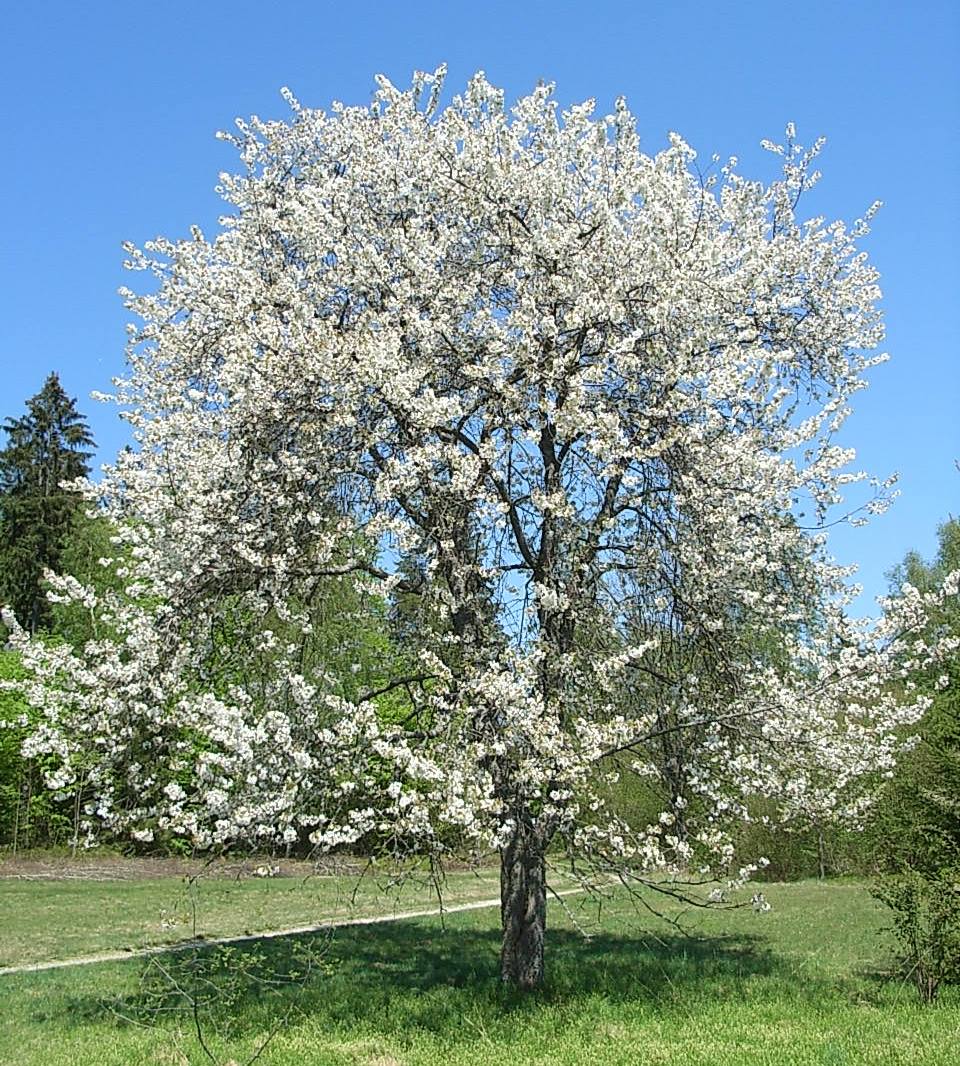Prunus avium
Wild sweet cherry
Species Tolerances
- Drought Tolerance: Medium
- Shade Tolerance: Yes
- Waterlogging Tolerance: Low
- Frost Tolerance (trees from warmer climates may be frost tolerant, but their flowers may not be): Yes
- RHS Hardiness: H6
- Optimum Conditions for Growth:
A medium sized understorey tree of woodland. Prefers moist but well-drained and moderately fertile soil. Avoid frost pockets if being grown for fruit. No strong dependence on either acid or alkaline soil pH. Flowers and fruits best in full sun. A shallow rooted tree so not tolerant of gales or exposure. - Susceptibility to Pest/Disease:
None of note at present in the UK.

Prunus avium Bayerischer Wald/ Konrad Lackerbeck/ https://creativecommons.org/licenses/by-sa/2.5/deed.en
Service to Pollinators
- Summary of Service to Pollinators:
Valuable source of early pollen and nectar, especially useful for the spring build up of all bee colonies. Honeydew also produced when aphids active. Extra-floral nectaries also producing nectar. - Nectar Value to Pollinators: 3 (of 0-3)
- Honeydew Value to Pollinators: 1 (of 0-3)
- Pollen Value to Bees: 3 (of 0-3)
- Flowering Period: April
Risks
- Human Toxicity: Toxic
- Livestock Toxicity: Toxic
- Invasive Risk: No
- Suckering: Yes
Products
- Edible Fruit: Yes
- Edible Leaves: No
- Edible Sap: No
- Edible Seeds: No
- Honey, major source in UK: Yes
- For any medicinal potential, see 'Further Details' below.
- Timber: Yes
- Livestock Fodder: No
- Other Products:
Highly valued for its timber.
Utility
- Nitrogen Fixation: No
- Organic Matter Accumulation: Yes
- Phytoremediation: Insufficient Data
- Deacidification: Insufficient Data
- Windbreak: No
- Soil Erosion Control: Yes
- Shade or Shelter: Yes
- Plant Support: Yes
- Integrated Pest Management: Insufficient Data
- Wildlife Value: Yes
- Wildlife Value Summary:
Good for biodiversity referring to invertebrate diversity feeding on the tree, especially insects such as moths and beetles. Fruit are available to a large range of birds and mammals. - Graduated Nativeness Classification ⓘ: 1 (of 1-10)1. Historic Native
2. Historic Introduction
9. Neutral Introduction
Further Details
Frost around the time of flowering may knock back its fruit bearing capacity but this is a very hardy species. Extra-floral nectaries producing nectar, found either side of the leaf stalk where the petiole meets the leaf blade, of value to all pollinators